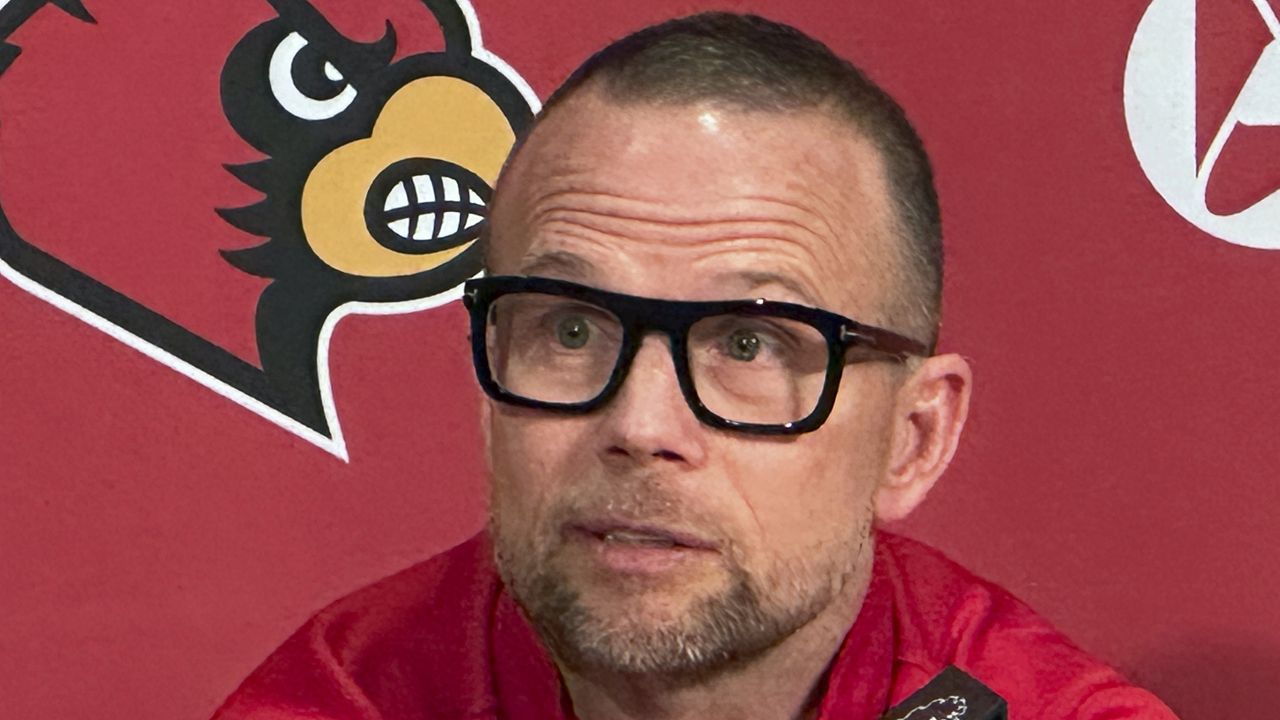LOUISVILLE, Ky. — The Hispanic population in Kentucky has grown from 1.5% in 2000 to 4.6%, according to U.S. Census Bureau data. Plus, 2.9% of Kentuckians speak Spanish as their main language in the home.
With demographic shifts come community conversations on how to better serve residents. Norton Healthcare decided that entailed opening up a 100% bilingual, English and Spanish, primary care clinic in Okolona to serve the growing Hispanic population.
For Carlos Vera, going to the doctor's office in Louisville means he can speak freely and comfortably about his health concerns. That's because his primary care physician, Dr. Juan Polo, speaks his native language, Spanish.
“And Dr. Polo has worked many years and is very professional," Vera told Spectrum News 1. "Pretty much, all Cubans go to Dr. Polo, and language isn’t a barrier because he speaks Spanish.”
Vera emigrated from Cuba to the U.S. 16 years ago. He has always spoken Spanish with Dr. Polo, who also came as a refugee from Cuba. Dr. Polo said he worked for a decade in Cuba as an OB/GYN.
“So when I moved to the U.S.A., I was already a physician. I was an obstetrician, and, here in the states, I became an internist. I did three more years of training to become internal medicine," Dr. Polo explained.
For over two decades Dr. Polo saw patients who spoke English, Spanish, and other languages at his private practice. However, now, he is only seeing Spanish-speaking clients, since Dr. Polo now works at La Clínica Preston, which is located in Southern Jefferson County.
“I have said multiple times that when people want to see the doctor or see the priest, they want to speak in Spanish and in their maternal language," Dr. Polo explained.
Dr. Polo said doing this type of work in his native language, fills a need he started to see in the late-90’s, when he was in medical training.
“I used to have Hispanic patients in UofL in training, and, then, I realized that it would be excellent to remain here in Louisville," said Dr. Polo. "And I didn’t move; I didn’t go to Florida or to Miami, like many of my friends. I just decided to stay here and take care of the Hispanic people," Dr. Polo explained.
Dr. Polo said there are always language barriers that come up when an interpreter is used with a patient. Plus, there are other barriers he sees.
“To tell somebody you don’t know all of your problems...depression, sadness, frustrations, sexual problem—and you have to use an interpreter for that—it’s not appropriate.”
Vera also agreed with Dr. Polo. He told Spectrum News 1 that he has used interpreters when he can’t see his doctor, such specialists or for emergency medical situations.
“Definitely, the medical experience is better, rather than speaking with someone you don’t know," Vera said, in regards to having a doctor who speaks one's native language.
Vera added, "And with Dr. Polo, besides being a doctor, he’s also a friend. A person you already trust to talk about whatever problems you have."
Having a doctor one feels comfortable to speak with is an important step toward making people who have left their home feel a little more comfortable in their new one. Especially, when the conversation is about some of the most important discussions in life, health.
Dr. Polo said Norton Healthcare is looking to expand with more bilingual clinics, like La Clínica Preston. However, there are no concrete details or dates, yet.










